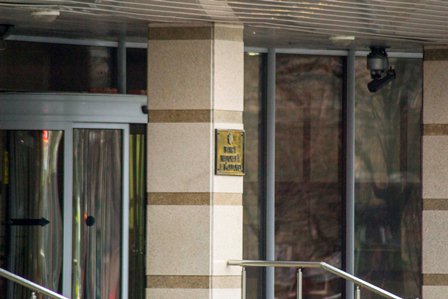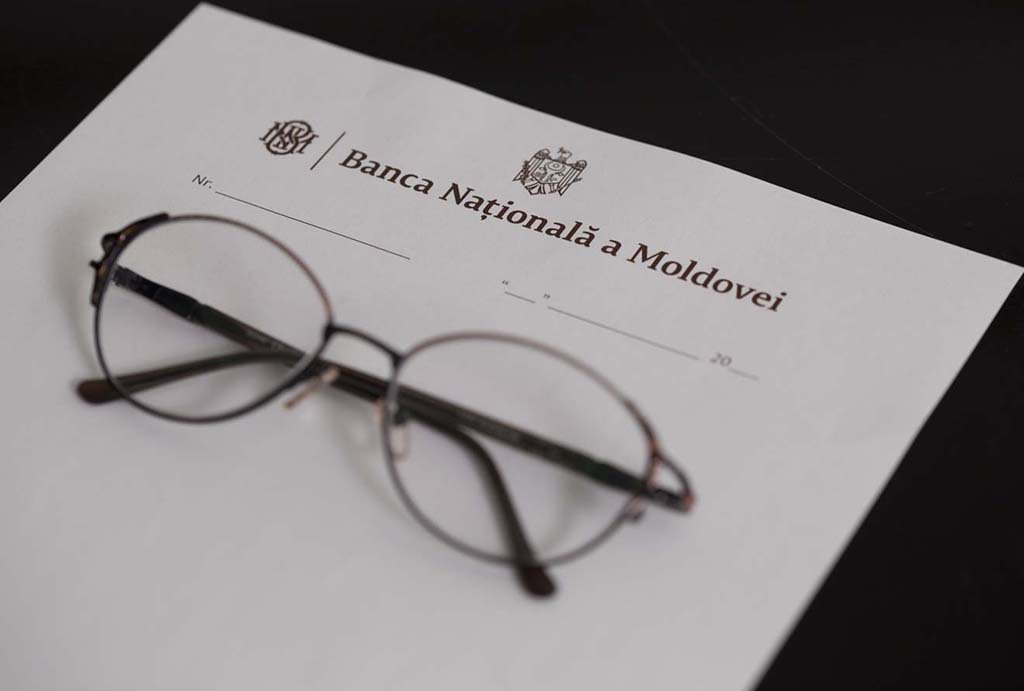Welcome to the official website of the National Bank of Moldova!
×
Do you have good eyesight and want to turn this tool off?
Do you have good eyesight and want to turn this tool off?
Schedule of reception of citizens by the Executive Board of the National Bank of Moldova.
The registration of applicants for an audience is carried out based on a written request on the subject addressed.
Anca Dragu, Governor
1st Wednesday of the month: 14.00-16.00.
Petru Rotaru, First Deputy Governor
2nd Wednesday of the month: 14.00-16.00.
Tatiana Ivanicichina, Deputy Governor
3rd Wednesday of the month: 14.00-16.00.
Constantin Șchendra, Deputy Governor
4th Wednesday of the month: 14.00-16.00.
Mihnea Constantinescu, Deputy Governor
5th Wednesday of the month: 14.00-16.00.
Welcome to the official website of the National Bank of Moldova!
If you want to send a message (question or suggestion) on-line, go to section "Feedback" from the main menu at the top of the website.
You can choose one of the most popular reports from the list:

National Bank and the members of its decision-making bodies shall be independent in exercising the tasks conferred upon them by law, and shall neither seek nor take instructions from public authorities or from any other authority.

In order to ensure and maintain price stability over the medium term, the National Bank’s aim will be to keep inflation (measured by Consumer Price Index) at the level of 5.0 percent annually with a possible deviation of ± 1.5 percentage points, considered to be optimal for growth and development of Moldova's economy over the medium-term.

Financial stability is achieved by strengthening the resilience of the financial system, limiting the contagion effect and reducing the accumulation of systemic risks, thus contributing to the sustainability of the financial sector and economic growth.

National Bank shall have the exclusive right to issue on the territory of the Republic of Moldova banknotes and coins as legal tender, as well as commemorative and jubilee banknotes and coins as legal tender and for numismatic purposes.

National Bank is exclusively responsible for the licencing, supervision and regulation of financial institutions activity.

National Bank of Moldova acts as banker and fiscal agent of the State and shall receive from state bodies economic and financial information and documents, which are necessary for carrying out its tasks.

National Bank of Moldova is an autonomous public legal entity and is responsible to the Parliament.

National Bank shall inform the public on the monetary policy strategy on the results of the macroeconomic analysis, the evolution of the financial market and on statistics, including with regard to monetary supply, crediting, balance of payments and the state of the foreign exchange market.

National Bank of Moldova is responsable for the compilation of the balance of payments, international investment position and the statistics of the external debt of the Republic of Moldova.
The website www.bnm.md prioritizes data security and uses cookies to enhance the browsing experience and user comfort. Accepting the use of cookies contributes to faster page loading and ensures the proper functioning of the information presentation modules. Refusing to use cookies may slow down the site’s loading speed and hinder smooth navigation between pages. For more details, please refer to the Cookie Usage Policy.
Configure your cookie preferences by category. Strictly necessary cookies cannot be disabled, as they are essential for the proper functioning of the website.
These cookies are fundamental to the correct operation of the website. They include session cookies used for load balancing and maintaining the application's state.
Cookies: cookiesession1, JSESSIONID
These cookies enable personalized features, such as font size preferences, interface state, and selection of desktop/mobile version.
Cookies: has_js, fontCookie, statistics_time, statistics_tooltip, bnm_coins_expansion, desktop_version
Such cookies help us understand how visitors interact with our site by collecting and reporting information anonymously.
Cookies: _ga, _gid, _gat, node_stat
These cookies store accessibility preferences, such as text size, contrast, cursor size, and animation settings.
Cookies: a11y_oversized_widget, a11y_animation, a11y_invert, a11y_contrast, a11y_dyslexic, a11y_cursor, a11y_factor
The National Bank compiled the data for October of “Banca de Economii” SA, BC “Unibank” SA and BC “Banca Sociala” SA regarding the receipts of these banks undergoing liquidation and the payments carried out to the Ministry of Finance. This, on 31 October this year, the total cumulative repayments for the emergency credit constituted MDL 1,713.4 million.
The liquidation process of the aforementioned banks is supervised by the National Bank, which aims that these banks will use the available assets in limited periods and obtain their maximum counter value.
The National Bank of Moldova shows maximum openness in working with the investigation bodies, by providing the necessary materials for investigating the circumstances of the bank fraud, which results are expected. Therefore, the NBM supports the efforts to recover the stolen money and hold accountable the guilty persons.
The National Bank of Moldova is engaged in a comprehensive process of reformation of the banking sector, in order to avoid such frauds in the future. In this context, many measures have been and are still being taken: continuous monitoring of the quality of the banks’ shareholders and the restriction of access in the system for non-compliant shareholders, the implementation of best practices of corporative governance with personal accountability of the heads of banks, the modification of the regime of large exposures in order to avoid exaggerated placements in other banks and limitation of the norms of exposures against the persons affiliated with the banks. Some other measures that are carried out refer to the implementation of a modern regulation framework and a risk-based supervisory process that would allow the early detection of deficiencies and risks of banks, implementation of the credit register that requires daily reporting of loans higher than 1% of capital even from the stage of submission of request for credit etc. At the same time, new instruments of early intervention and banking resolution, that allow the safeguarding of banking institutions at earlier stages without appeal to public money, were implemented. Also, the qualitative and quantitative requirements of the capital of banks were revised, new instruments aimed to increase the financial stability of the entire banking system were introduced, and the rise in the deposit guarantee ceiling up to MDL 50 thousands was promoted.
These measures confirm the assumption and performance by the National Bank of the commitments of redressing and reformation of the banking system, of modifying the legal framework, and increasing the professional level in the system for avoiding similar frauds in the future. Moreover, it is the independence and professionalism of the central bank that are the paramount guarantees against bank and fraud crises.
1 Grigore Vieru Avenue,
MD-2005, Chisinau, Republic of Moldova.
© National Bank of Moldova
Terms of use
Cookie Usage Policy



